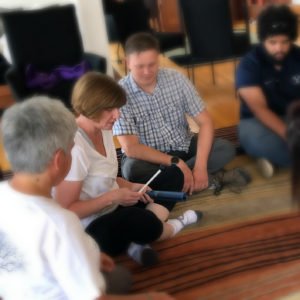Let the Listening Campaign Begin With Us
The Dalai Lama did it. Bishop Desmond Tutu did it. Maybe all the districts in the state of California can do it. Teachers can listen to students. Principals can listen to teachers.
Superintendents can listen to principals, and School Boards can listen to superintendents. This is the paradigm shift being called for in education today.
Michael Funk, the Director of the Expanded Learning Division for the CA Department of Education, summed up the takeaways from the SEL conference I attended in Sacramento in October with the term “generative listening.” This is deep listening imbued with curiosity, when we set our agendas aside and acknowledge our fears and discomfort and stay present in the room anyway. From this open-hearted, vulnerable place, we can build something together that benefits everyone.
It’s not easy. As Funk mentioned, changing mental models or habits of mind is the hardest work. It’s not selecting a curriculum, budgeting and org charts. At the large public middle school I taught at in an impoverished, traumatized community in the Bay Area, teachers voted against offering a social-emotional learning lesson once a week or even once a month. They opted for never, saying they didn’t want another lesson to prep, something else they needed to account for. Some didn’t feel equipped to teach SEL.
Why should they? If the emotional lives of teachers aren’t honored, why should they be asked to honor the emotional lives of their students? Creating a school culture that provides a safe environment for self-inquiry for staff is the first step to insuring fidelity in our delivery of SEL to our students. By turning our attention inward, we can train in connecting body and mind, and acknowledging painful emotions as they arise. By investigating how they manifest in our bodies—tight fists, clenched jaws, heavy chests, fluttering bellies, we can learn to have our emotions instead of letting our emotions have us, and offer ourselves self-compassion on the spot. Regulating our own nervous systems in this way allows us to help our students regulate their own.
Arriving at this level of self-awareness doesn’t happen in one PD or two. It requires a commitment to the long haul, and it might encourage teachers to also commit to the long haul, which would be good for education.

